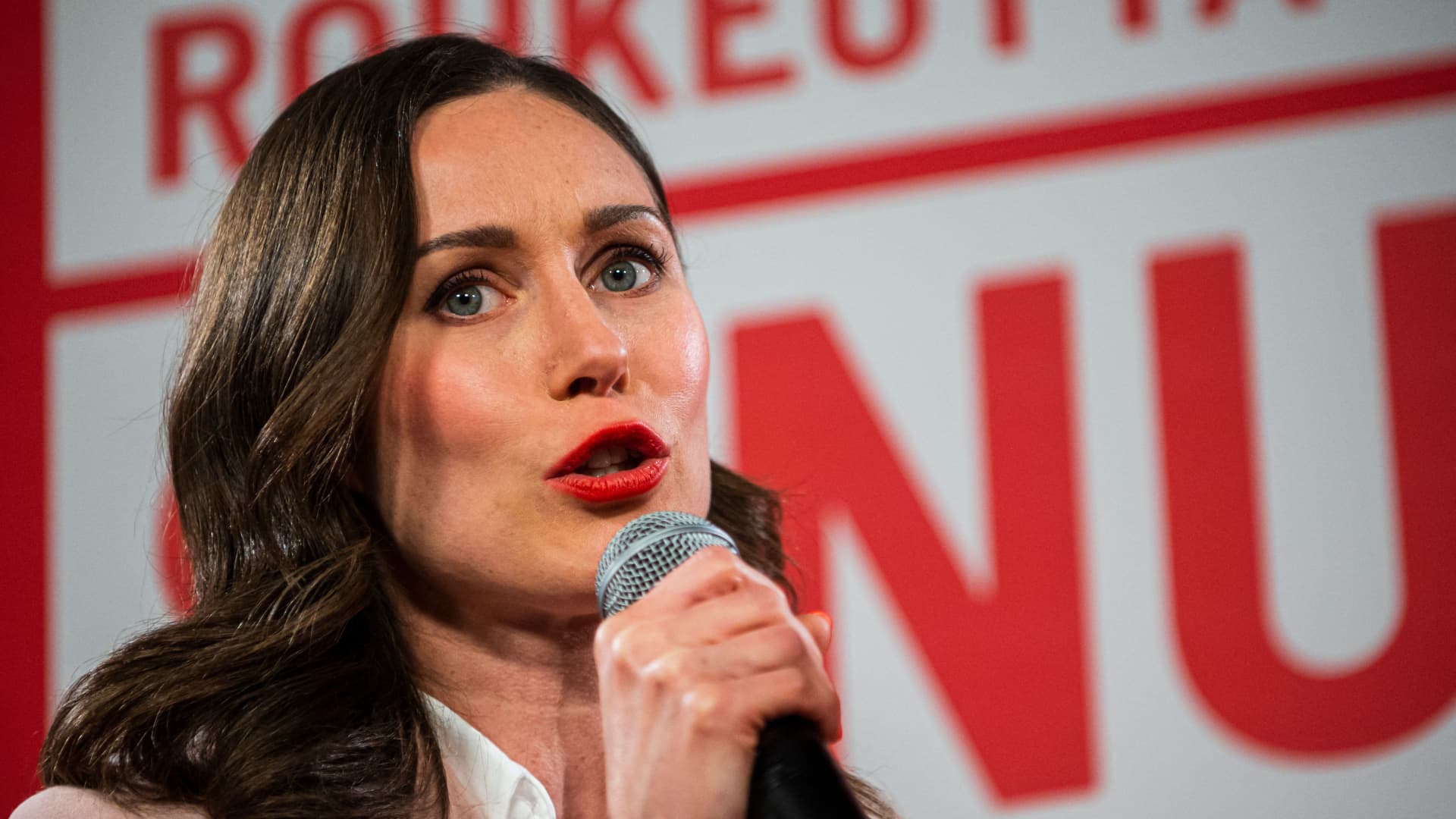Finland’s Sanna Marin, a global progressive icon, loses out on second term after right-wing surge

Marin entered office as the world’s youngest serving prime minister in 2019 at the age of 34.
Jonathan Nackstrand | Afp | Getty Images
Finland’s Sanna Marin conceded defeat in an extremely tightly contested election on Sunday, bringing an abrupt end to the tenure of the millennial lawmaker regarded as a figurehead for progressives around the world.
Marin entered office as the world’s youngest serving prime minister in 2019 at the age of 34. She formed a center-left coalition government of five parties that all had female leaders — four of whom were under the age of 35 at the time.
As the leader of the left-wing Social Democrats, Marin received praise for her vocal support of Ukraine following Russia’s full-scale invasion, paving the way for Finland to join NATO and navigating the Nordic country’s response to the coronavirus pandemic.
However, after just one term as prime minister, Marin was pushed into third place by her right-wing political rivals.
“This is a great day because we have done well in the elections,” Marin said, according to a translation.
“Congratulations also to the other winners of the elections, congratulations to the Coalition Party and congratulations to the Finns Party. Democracy has spoken. The Finnish people have cast their votes and a celebration of democracy is always a wonderful thing.”
Marin’s Social Democrats received 19.9% of the vote and increased its share of parliamentary seats.
However, Finland’s main conservative National Coalition Party, led by Petteri Orpo, came out on top with 20.8% of the vote, while the right-wing Finns Party received a record 20.1% share of the vote.
Orpo, surrounded by supporters at a restaurant in the capital of Helsinki, reportedly said talks over forming a new government would be initiated under the leadership of the pro-business NCP.
Finland, a northern European country of around 5.5 million that shares a border with Sweden, Norway and Russia, was recently recognized as the world’s happiest nation for the sixth consecutive year.
‘A loss for global feminist politics’
The Women’s Equality Party, a feminist political party established in the U.K. in 2015, described Finland’s election result as a “loss for global feminist politics.”
“Sanna Marin introduced groundbreaking parental leave policies and governed a coalition with five other women — a masterclass in collaborative politics,” the party said via Twitter.
Marin was criticized by opposition lawmakers during her time in office for the coalition government’s public spending.
She also found herself at the center of a domestic backlash after a leaked video emerged showing her dancing at a party with Finnish celebrities at the peak of Europe’s energy crisis. Marin reluctantly agreed to take a drug test in an attempt to defuse the crisis, which found no trace of illegal substances.
Ardern, another global progressive icon, announced in mid-January that she would step down from her role, saying she no longer felt she had “enough in the tank.”
Dave Rowland | Getty Images News | Getty Images
Ashok Swain, a professor of peace and conflict research at Sweden’s Uppsala University, said via Twitter that Finland’s “rockstar PM” would be missed in global politics — drawing a comparison to the shock resignation of New Zealand Prime Minister Jacinda Ardern earlier this year.
“No impact on Finland’s support to Ukraine or joining Nato,” Swain said of Marin’s departure from office. “But, Sanna Marin, like Jacinda Ardern, will be missed in global politics.”
Ardern, another global progressive icon, announced in mid-January that she would step down from her role, saying she no longer felt she had “enough in the tank.”
As part of their first face-to-face meeting in November last year, Finland’s Marin and New Zealand’s Ardern hit back at a suggestion from a journalist that some people might have thought they were meeting because they share a similar demographic.
Responding to the question at a news conference in Auckland, New Zealand, Marin said, “We are meeting because we are prime ministers.”
Ardern, meanwhile, replied by saying, “I wonder whether or not anyone ever asked Barack Obama and John Key if they met because they were of similar age.”









